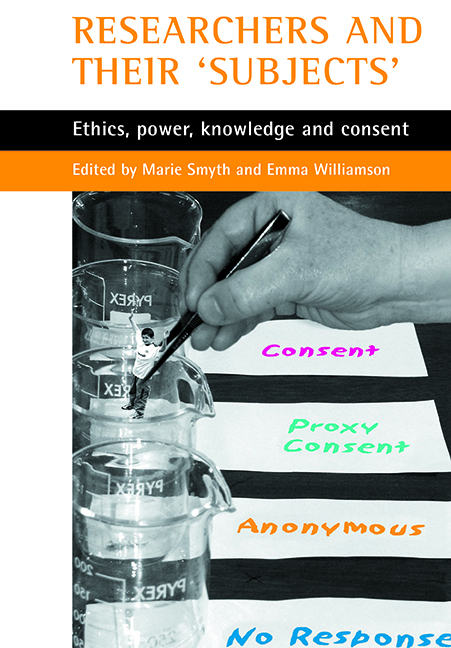ten - Speaking truth to power: experiencing critical research
Published online by Cambridge University Press: 20 January 2022
Summary
Introduction
This chapter affirms the centrality of the relationship between the ‘researcher’ and the ‘researched’ in the context of doing critical research into the use and abuse of power in state institutions. It takes as its starting point the criticism ‘from below’, that mainstream social sciences’ research has been implicated in maintaining the status quo, misrepresenting the lives and experiences of people marginalised and excluded by structural inequalities. It traces the theoretical underpinnings of critical research and its potential for constructing alternative accounts to those embedded in official discourse. Focusing primarily on research into the aftermath of deaths in controversial circumstances, the article reflects on the process of researching the experiences of the bereaved in seeking truth and acknowledgement. It demonstrates how a critical approach can secure the participation, collaboration and integration of research ‘subjects’ – people – in the development of an inclusive research process. Finally, it considers the methods of research, the responsibilities and ethical dilemmas faced by researchers and the challenges to the powerful that together comprise the process of critical research.
On ‘knowing’
Your clever academics befriend us for a few months, they come down to our site, eats our food and drinks our tea. Some of them even lives among us. Then they disappear to their nice homes and university libraries. Next thing we know they’re giving lectures on us, writing books about us … what do they know about our struggles? How can they know our pain? We live it all the time. Our persecution lasts a life-time, not just a few months. Give us the tools to say it right and we’ll tell you like it is. You know what we call them on our site? Plastic gypsies. (Quoted in Scraton, 1976, p 76)
Roy Wells, then President of the National Gypsy Council, spoke these words in 1975 at the launch of an academic report into the deterioration in relations between house-dwellers and travellers. Flanked by academics and policy makers, he reminded the audience of several hundred local authority councillors and officials of what it felt like to be in the goldfish bowl of academic research, of the distance between researchers and the researched and of the experience of alienation when the control of a people’s destiny lay elsewhere.
- Type
- Chapter
- Information
- Researchers and their 'Subjects'Ethics, Power, Knowledge and Consent, pp. 175 - 194Publisher: Bristol University PressPrint publication year: 2004



